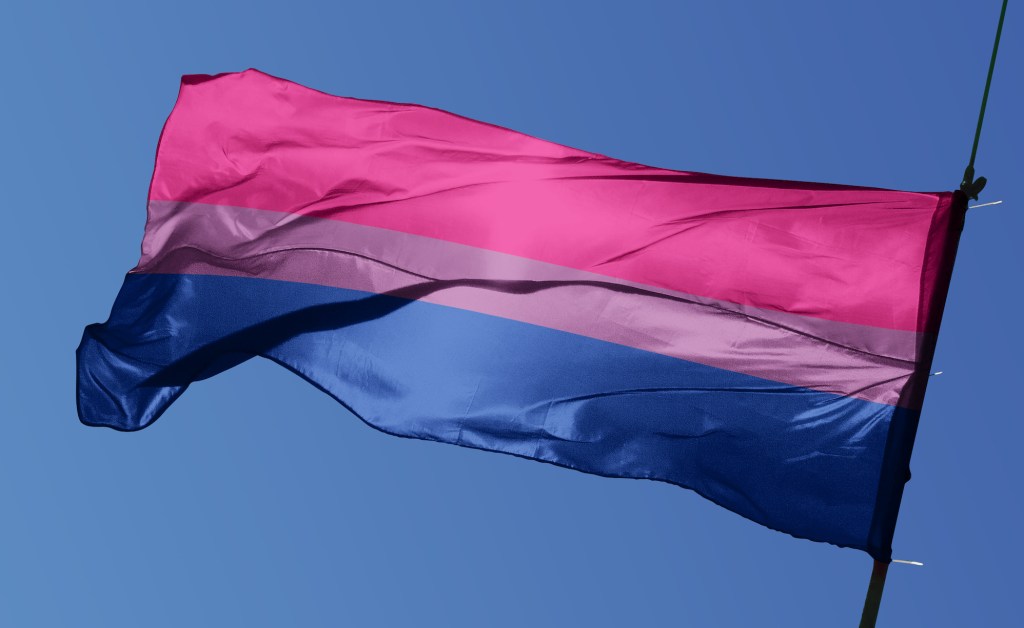Bisexual erasure is a problem in the workplace too – here’s how to combat it

Many bisexual people hide their identity at work to prevent micro-aggressions and bi-erasure. (Getty Images/PinkNews)
Many bisexual people hide their identity at work to prevent micro-aggressions and bi-erasure. (Getty Images/PinkNews)
PinkNews examines the issues faced by bisexual people at work, the impact of bi-erasure and what colleagues and employers alike can do to support their bisexual colleagues.
A common experience for many bisexual people is the feeling of being invisible, and this rings true for the workplace. Many bisexual people are faced with the choice of being out and living their authentic selves or trying ‘fit in’.
With the amount of time spent at work, having to hide a huge part of one’s identity can be emotionally draining and can lead to burnout, mental health issues and even exacerbate imposter syndrome.
LGBTQ+ people are often discriminated against and even bullied at work: Data from McKinsey suggests that up to 30 per cent of LGBTQ+ people believe that their sexual identity will harm their career progression.
Katherine, an art history professor at a small state university in the rural US Midwest, believes her bisexual identity has positively impacted her career in academia – but she remains acutely aware of the issues it poses, too.

She tells PinkNews: “While working in a Women’s and Gender Studies department for five years, in a way [being bisexual] legitimises my research and teaching interests. When introducing myself to students in those classes, it creates a safe space for my LGBTQ+ students to share their experiences and perspectives.”
However, living in a largely conservative part of the country and with anti-LGBTQ+ bills on the rise, Katherine still maintains a level of care in how she discloses her sexual identity.
“I mostly have fear from outside the university setting from internet trolls and conservative politicians,” she explains. “But this is also one of the reasons I try to be so open with students. So many of them come from rural communities where they can’t explore their own sexuality or gender.”
The impact of bisexual erasure at work
Many in the bisexual community contend with bi-erasure – the tendency to remove, ignore and even falsify experiences of bisexuality in legacy media, academia and history. In its most extreme form, bi-erasure can also manifest as the belief that bisexuality doesn’t exist.
Bisexual people can experience specific micro-aggressions at work, including assumptions about their partners and relationships and inappropriate questions about their personal lives. Bisexual women are often fetishised and bisexual men are often told that they are “too afraid to come out as gay.”
Frustratingly for the bi community is that sometimes bi-erasure and micro-aggressions come from within the LGBTQ+ community itself.

Fears of experiencing this could be preventing bi people from being out at work. Data from Catalyst found that in the US, just 17.5 per cent of bisexual men are out at work, compared to 50 per cent of gay men. For bisexual women, nearly 20 per cent are out compared to 49 per cent of lesbians.
Katherine admits that bi-erasure does happen frequently: “People tend to view any monogamous relationship, regardless of the gender of those involved, as being straight or gay.”
She says she combats bi-erasure by being more open with friends and family, yet she does acknowledge the negative impact it can cause.
“I think the bi-erasure affects me in the way that it is part of me, and I hate that in some cases I cannot share that part of me for fear of being targeted politically.”
Supporting bisexual colleagues and employees at work
Here in the UK, the most recent census data reveals that 1.28 per cent of the population (640,000) identified themselves as bisexual. For Gen Z specifically, those born between 1997 and 2012, four per cent identified themselves as bi.
As the younger generations feel more comfortable being out and head into the workplace, the responsibility of employers and colleagues to recognise all facets of the LGBTQ+ community is even more crucial.
Aside from simple steps like respecting pronouns and challenging bullying and discrimination, there are some other things business leaders and co-workers can do to support the ‘B’ in the LGBTQ+.
Education
Bisexuality is often misunderstood and can be attached to stereotypes. If employers understand that being bisexual is a valid sexual orientation, and that the sex of an employee’s partner, partners or spouse does not immediately categorise them as ‘gay’ or ‘straight’, it can create an empathetic working environment where everyone has the opportunity to live their authentic lives while at work. Business leaders should consider targeted training and resources that specifically tackle the bi-experience.
Listening and communication
Active listening is a powerful tool for supporting bisexual employees. Much like the rest of the LGBTQ+ community, no two peoples experiences are the same. Creating opportunities for open conversations where bisexual employees can share their experiences, concerns, and suggestions. Be empathetic and validate their feelings, showing that you genuinely care about their well-being. Encourage a culture of respectful communication, where everyone’s perspectives are valued.
Respect privacy and the ‘coming out’ experience
Coming out is a personal journey, and it’s important not to pressure anyone to disclose their sexual orientation. Never assume someone’s sexual orientation or share their personal information without their consent. Part of an inclusive workplace is creating a safe space where employees can choose to share when they’re ready promotes trust and respect.
Share your thoughts! Let us know in the comments below, and remember to keep the conversation respectful.
